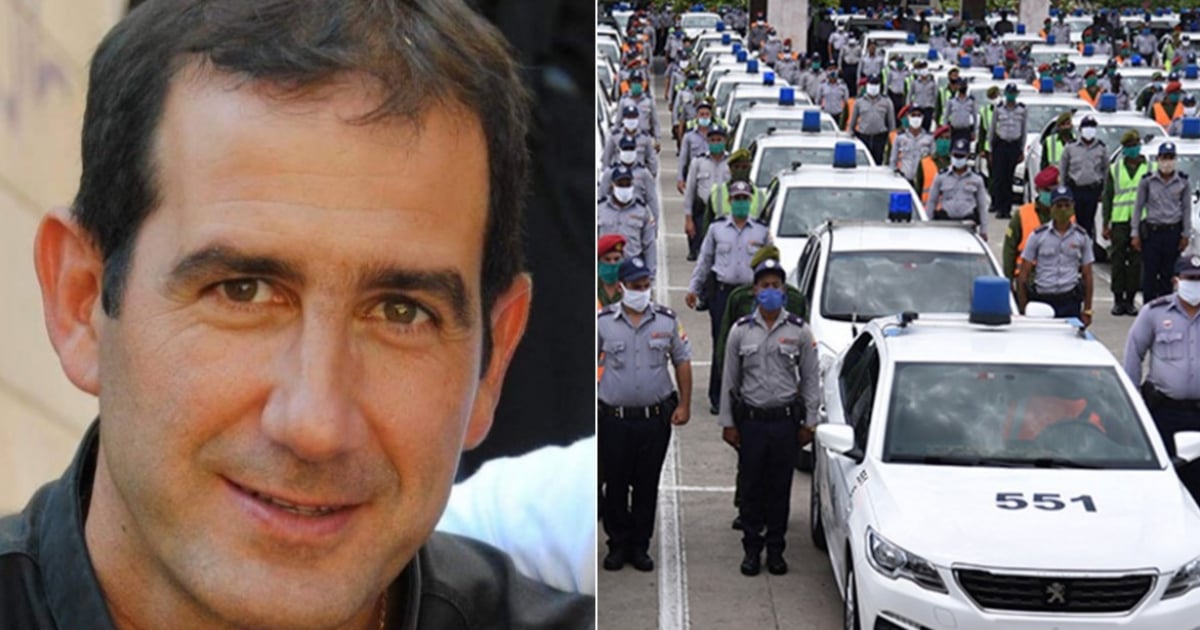

The Cuban priestAlberto Reyes, known for his frontal position against the regime, sent a message to the police and military of his country, whom he asked to never repress the people, even if the order was given to them.
Reyes, parish priest of the diocese of Camagüey, affirms that even in dictatorships a soldier can do a lot of good by combating crime, protecting the vulnerable, enforcing just laws and preventing abuses and abuses.
The problem arises if that officer receives combat orders against his own compatriots and is sent to repress what is a citizen's right.
Then, the priest points out in his text, is when the person must be able to say to himself: "I did not become a soldier to repress, to fight freedom, to muzzle justice."
Next,CyberCubaShare the full text of the publication, published on your profileFacebook:
"I've been thinking... (LXV) by Alberto Reyes Pías
I've been thinking about what can't be improvised
In the necessary process of 'building life', I had several colleagues who were fascinated by the military area. They dreamed of being police officers, or joining the army... being part of the framework that regulates the social order.
It is an important vocation, because a society needs people who guarantee order, who fight crime, who enforce the laws that protect citizens.
But the meaning of a profession is not determined so much by what is chosen as by “what for” it is chosen.
The basic question of every vital option is: 'So that?'. Why do I want to be a police officer, FAR agent, military man, soldier... or whatever?
Because if the ultimate motivation is not to serve society, help the country improve, defend justice, protect the innocent... then we are going wrong.
I understand that being a soldier in Cuba is complicated, because we are talking about being under the orders of a totalitarian, non-democratic system, which only admits the freedom of citizens within the narrow framework of fidelity to their unique and unquestionable thought. And society, by nature, is the opposite: it is plural, it is diverse, it is creative...
Even so, a soldier in Cuba can do a lot of good. It can combat crime, it can protect vulnerable citizens, it can enforce fair laws, so that there are no abuses or abuses.
However, a soldier in Cuba may find himself in the difficult situation of receivingorders of combat against his own compatriots, he can be sent to repress not only what is not wrong but what is a citizen's right, as is the free and public peaceful expression of their demands, of their claims to the government, when they feel that that government does not respond to their needs.
And it is in these circumstances where it is necessary for the 'why?' to be activated, and for the person to be able to say to themselves:'I did not join the military to repress, to fight freedom, to muzzle justice'. This is where each one needs to turn to what gives them the most value: to God, to fidelity to oneself, to being able to look into the eyes of one's family, to the spirit of our founding fathers... to anything, but to that May it give you the courage to say:'No, I'm not going to do it. 'I am not going to repress, I am not going to hit, I am not going to detain, I am not going to torture, I am not going to ask others to hit... I am not going to raise my hand against my brother.'
But this cannot be improvised, because fidelity to good always has prices, and the fear of punishment and the consequences of a firm 'no' is part of every human soul.
Therefore, before putting on the uniform, it is necessary to talk to him, and listen to his voice when he says: 'I clothe you with an identity, so that you may be, in the midst of your people, their defender and protector, and not the executioner who obeys. blindly to those who ask you to beat the truth to silence'".
What do you think?
SEE COMMENTS (1)Filed in: